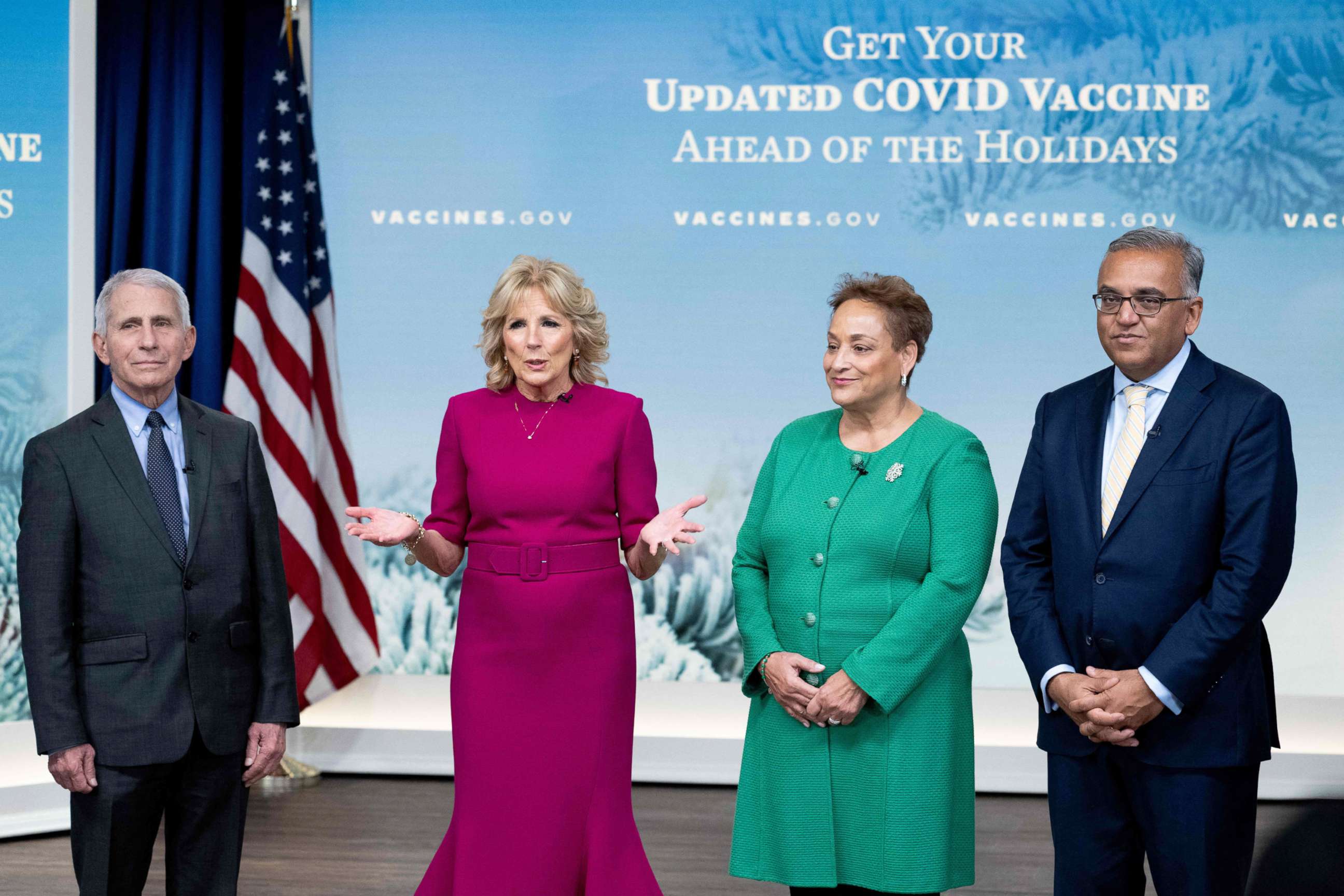Jill Biden, Fauci urge seniors to get COVID booster before holidays: 'Don't wait'
Roughly one-third of Americans ages 65 and older have gotten a bivalent booster.
The White House on Friday urged older Americans to get their bivalent COVID-19 shots now in order to be protected in time for the holiday season.
"These moments seem even more precious now knowing what it's like to lose them to a deadly disease that kept us apart," first lady Jill Biden said at a town hall alongside Dr. Anthony Fauci, the nation's top infectious disease expert, and White House COVID Coordinator Dr. Ashish Jha.
"Which is why the most important thing you can do to prepare for your holidays. is to get your updated COVID vaccine," Biden continued. "And if you get it now, you'll be protected in time for winter holiday gatherings."
Biden then handed the reins to Fauci, Jha and AARP CEO Jo Ann Jenkins to field questions on when and why to get the bivalent booster shots.
Fauci, who is leaving his post as director of the National Institute of Allergy and Infectious Diseases at the end of the year, said the new booster shot that became available in September is the best way for people to protect themselves from the evolving virus.
"Don't wait," Fauci, 81, said. "If you wait, you put yourself at risk."

Jha and Fauci advised AARP members that it is safe to get COVID and flu shots simultaneously, as the nation also contends with high levels of the flu and RSV.
The administration's vaccine push comes as older Americans make up a higher share of COVID deaths. In mid-November, Americans aged 65 and older made up 92% of all deaths from the virus -- the highest share since the pandemic began in 2020.
Despite the administration's efforts to spread the word on vaccines, just under 13% of people over the age of 5 have gotten a bivalent booster, according to data from the Centers for Disease Control and Prevention.
Roughly one-third of Americans ages 65 and older, who are among those most at risk for serious illness from COVID, have received a bivalent booster, according to CDC data.

The new booster, which became available in September for those ages 12 and older, and in October for those between the ages of 5 and 11, protects against the original virus strain and Omicron subvariants BA. 4 and BA.5. The FDA on Thursday authorized bivalent boosters for children between the ages of 6 months and 4 years old.
Dr. Jha said Friday that getting a bivalent booster is the "most important thing you can do to make sure immunity is up to date and that you can fight the virus that's out there." He said he expects that getting an annual COVID shot will become a normal routine.
"The good news is this virus does not have the same impact on our lives that it did two years ago, or even what it did last year," Jha said. "And that's because of us because we have updated vaccines, we have treatments."




